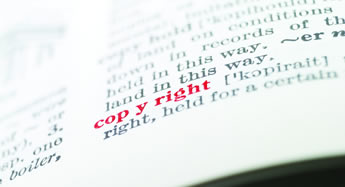Free Speech Alert! Potential Implications of the Copyright Protection under the Digital Economy Act?
If ISPs do not comply with their Notification or Technical Measures obligations, they can be fined up to £250,000.
Copyright owners should generally be encouraged by the Digital Economy Act's provisions which will force ISPs to help copyright owners combat online piracy. This article discusses the potential implications for freedom of expression.
As described in more detail elsewhere, the legislation provides for three main systems for reducing copyright infringement on the Internet.

The Notification System
The first is a notification system ('the Notification System') as between copyright owners, certain ISPs and their subscribers. Where it appears to a copyright owner that someone online ('the subscriber') has infringed the owner's copyright, the owner can make a "copyright infringement report" to the relevant ISP. The ISP must, within one month, notify the subscriber of the owner's claim of infringement and advise the subscriber, amongst other things.
- on how to prevent the unauthorised use;
- that the owner may require disclosure of a list of infringement reports which relate to the subscriber; and
- that the owner may obtain the subscriber's identity and take action against him or her.
Technical Measures
 Secondly, the legislation sets up the potential for future legislation requiring ISPs to take technical measures against subscribers for the purpose of preventing or reducing infringement ('the Technical Measures System'). Such measures may limit the speed of the subscriber's internet service, prevent a subscriber from accessing certain material, suspend or otherwise limit the subscriber's service.
Secondly, the legislation sets up the potential for future legislation requiring ISPs to take technical measures against subscribers for the purpose of preventing or reducing infringement ('the Technical Measures System'). Such measures may limit the speed of the subscriber's internet service, prevent a subscriber from accessing certain material, suspend or otherwise limit the subscriber's service.
If ISPs do not comply with their Notification or Technical Measures obligations, they can be fined up to £250,000.
Blocking Injunctions
Thirdly, the Act enables regulations to be made which would empower the court to order a "blocking injunction" ('the Blocking Injunction System'). Such an order would require an ISP to block access to a particular online location. In essence, the court would need to be satisfied that the location is one where there is "substantial amount" of copyright infringing material or it is being used to facilitate access to such a location. In deciding whether to grant the injunction, the court will have to take into account, amongst other things, whether the injunction would be likely to have a disproportionate effect on any person's legitimate interests and on the importance of freedom of expression.
Implications for freedom of expression
Each of these three systems has the potential not only of reducing infringement but also the potential to curtail legitimate freedom of expression. How these systems are implemented in practice will come down to secondary legislation and codes of practice1. These are going to be crucial if abuse of the systems is to be avoided.
 The Notification System is likely to lead to copyright owners and their advisors scouring the Internet looking for infringements. The Notification System will be good news for owners who discover the wholesale pirating of their music, film, TV, games, eBooks and software. However, unless the codes of practice are tightly drafted, there is a potential for the system to be seriously abused.
The Notification System is likely to lead to copyright owners and their advisors scouring the Internet looking for infringements. The Notification System will be good news for owners who discover the wholesale pirating of their music, film, TV, games, eBooks and software. However, unless the codes of practice are tightly drafted, there is a potential for the system to be seriously abused.
There are many instances when people feel that their valuable work has been copied but in fact, all that has been taken is an idea, not the expression of that idea, or an insubstantial part of that expression2. A classic example is the general look and feel of a website, which in many cases is unlikely to be protectable but, for example, commercial website owners never like it when a competitor uses similar colours and headings on their site. However, unless the relevant code3 is carefully prepared with effective anti-abuse prohibitions, over-zealous claimants are likely to send notifications to ISPs in circumstances where there is plainly no copyright infringement. The difficulty is that ISPs are not likely to want, or be able, to decide which copyright infringement reports are tenable and which are not. The last thing ISPs want to be is a judge of content and they will be concerned about the penalties for non-compliance of their obligations. Therefore, it may be easier for an ISP simply to notify the subscriber of the report and provide the owner with the relevant information. The subscriber will then need to decide what to do. Some subscribers may simply take down the material in the interests of caution. Others, who plan to appeal the notification or defend the copyright claim, will not, but they may in any event be concerned that their ISP believes them to be an infringer (even if this is not the case) and what this could mean for their service and subscription costs.
In many cases where a person suspects there is an "apparent infringement" of his or her copyright, they will be able to write directly to the alleged infringer. The Notification System is really designed to help copyright owners combat individuals (such as music file-sharers) who are trying to hide their identity (which only the ISP may have a record of). However, the Notification System legislation does not appear to prohibit notifications as a standard or additional way to claim infringement. Some claimants may use the ISP notification route as a general litigation strategy against online content which to which they object (whether because they honestly believe that there is an infringement or simply because they do not like the contents for whatever reason), regardless of whether they know the identity of the alleged infringer and whether or not there is a good claim of infringement.
The Notification System does not take into account the defences to a copyright infringement claim (e.g. the fair dealing provisions of the Copyright Designs and Patents Act). These include fair dealing for non-commercial research, for reporting current events or for criticism or review4. ISPs are highly unlikely to consider whether a particular alleged infringement amounts to fair dealing and will almost always simply comply with their notification and information obligations. Again, it will be up to the subscriber to decide whether to take down the material complained of, but they are likely to be concerned if their ISP is keeping a list of alleged infringements. From the ISPs' perspective, unjustified notifications will add to their administrative burden produced by the Act.
 Claims of misuse of confidential and private information sometimes include a copyright claim, i.e. where a newspaper publishes extracts from a private diary or a competitor is suspected of using a confidential document or database. Deployment of the Notification System can be another legal tactic of a claimant in such a case. The objective is to apply pressure to the defendant by getting its ISP involved in the case. The defendant may rely heavily on its ISP to operate its business and will not want the service from or commercial relationship with its ISP jeopardized in any way. Of course, the Notification System seems not to build into it the public interest defence which normally goes with a claim for breach of confidence or privacy.
Claims of misuse of confidential and private information sometimes include a copyright claim, i.e. where a newspaper publishes extracts from a private diary or a competitor is suspected of using a confidential document or database. Deployment of the Notification System can be another legal tactic of a claimant in such a case. The objective is to apply pressure to the defendant by getting its ISP involved in the case. The defendant may rely heavily on its ISP to operate its business and will not want the service from or commercial relationship with its ISP jeopardized in any way. Of course, the Notification System seems not to build into it the public interest defence which normally goes with a claim for breach of confidence or privacy.
As for the Technical Measures System, it will be fundamental that any regulations take account of the importance of freedom of expression. As the points above show, there is a risk that abuse of the system could lead to the free speech of innocent subscribers being limited by technical measures. Unless the secondary legislation and any relevant codes of practice are alive to the potential abuse, it is foreseeable that ISPs could restrict the access of a subscriber with the intention that this is the easiest way to comply with its obligations. Then the subscriber will need to appeal and/or apply to court to have the restrictions lifted. But the right to free expression may have been illegitimately curtailed, at least for a time.
Although the potential Blocking Injunctions are the most draconian measures under the Act, they have the benefit of being subject to (a) judicial scrutiny, (b) the requirements that the court takes into account the importance of freedom of expression and proportionality, and (c) the amount of infringements must be "substantial". Therefore, courts are likely only to order such powerful injunctions in clear cases.
In summary, the systems enacted in the Digital Economy Act are likely to help combat copyright infringement but unless the secondary legislation and codes are carefully drafted, they have the potential to be abused to the detriment of not only ISPs but also of freedom of expression.
If you have any questions on this article please contact us.
1 OFCOM has published a draft Initial Obligations Code for the purposes of is consultation.
2 Or, in the language of Infopaq, a part which comprises expression of the author's own intellectual creation.
3 Known as the "Initial Obligations Code".
4 See Chapter III of the Copyright Designs and Patents Act 1988 (as amended) for details.


Tim Pinto
"The Digital Economy Act copyright provisions not only have the potential to reduce infringement, but could also curtail legitimate freedom of expression."
"In many cases where a person suspects there is an "apparent infringement" of his or her copyright, they will be able to write directly to the alleged infringer."

